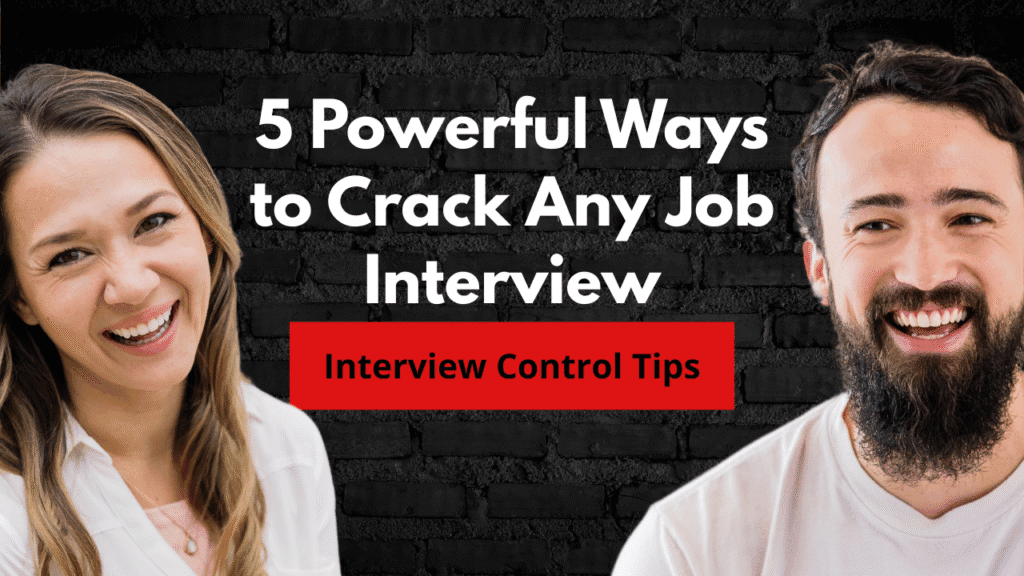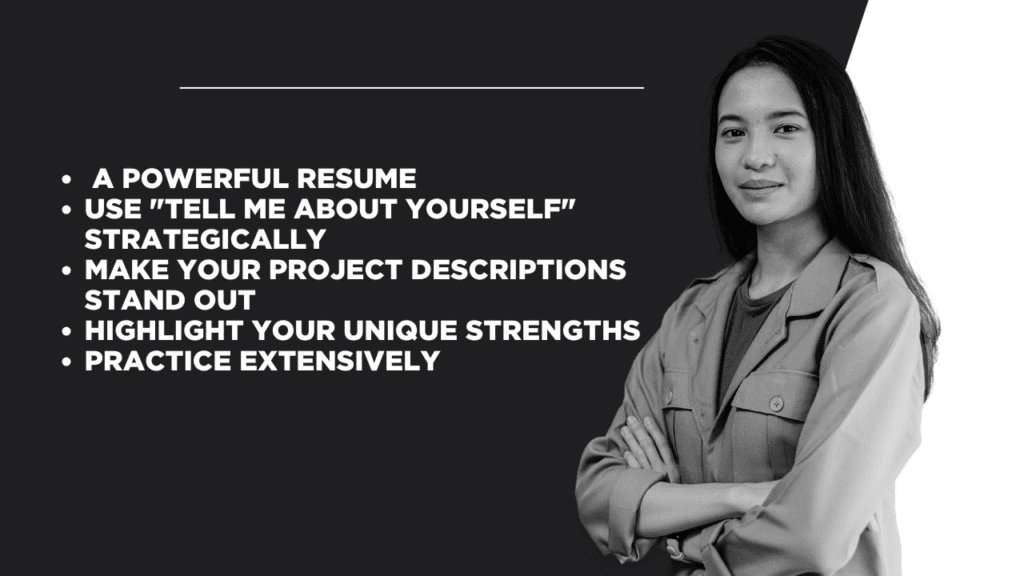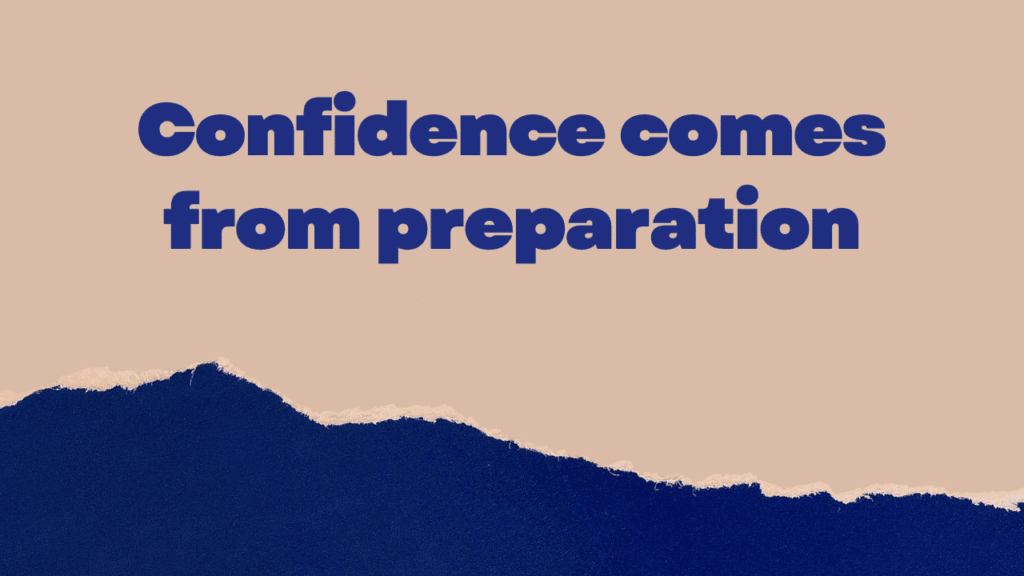For anyone, the most important process in getting a job is succeeding in the interview. So, facing and cracking an interview is very easy. First of all, you don’t need to be afraid of interviews. Let’s see the five interview control tips.

Interview Control Tips
1. A Powerful Resume
Controlling the interview is very important. The interview itself will not automatically be under your control. How it comes under your control is through your resume. The most powerful weapon to crack an interview is your resume. The points you mention in your resume are very important.
Key Points to Remember:
- Highlight some skills: Those skills must be the ones you know well and have mastered.
- Highlight some projects: They should be projects you really worked on.
- Highlight some certifications: You should have actual knowledge about them.
- Highlight trending topics: you should really know them.
The first 15 minutes of the interview will be based mainly on the points you highlighted in your resume. After that, they may ask company-related scenarios, but the opening 15 minutes revolve around your resume. So if you want to bring the interview under your control, the points you mention in your resume must be strong highlights. That means you should be confident. The interviewer should feel curious when seeing them, thinking, “Let me ask about this.” If you can create that curiosity, instead of the interviewer asking only what they want, they will ask about the points you highlighted.
Example – Quantum Computing Hook:
- Training in Quantum Computing
- Completed a Project in Quantum Computing
- Earned Certification in Quantum Computing
- Attended a Workshop on Quantum Computing
- Gave a Seminar to College Classmates on Quantum Computing
- Received Appreciation from College
If you highlight 4 to 5 points like this, when the interviewer sees my resume, he will think, “Oh, why did this candidate mention quantum computing so many times?” and he will ask me about it.
- The first advantage: even if the interviewer might not know quantum computing deeply, you have an edge.
- The second advantage: it creates a positive impression that you know something new compared to others who only list databases, full stack, Python, AI, GenAI, cybersecurity, etc.
So, to keep the interview under your control, you need hook points in your resume that make the interviewer want to ask about them. Just like YouTubers create attractive hooks in their videos, your resume should have hooks that make the interviewer curious.
2. Use “Tell Me About Yourself” Strategically
Even if you put such points in your resume, you may still have doubts whether the interviewer will really ask about them or will just directly test your programming skills in data structures, Java, or AI.
In that case, you must use “Tell me about yourself.”
- While answering this, don’t just give your basic biodata and qualifications.
- Instead, include your past, present, and future goals, reflecting your passion for learning.
- Show your interest in learning new topics.
Example:
“I am very interested in learning new things. In my college, I was the first person to learn quantum computing, and I didn’t keep the knowledge to myself; I shared it with my classmates.”
With this, you are showing two things:
- You have the perspective to learn new things.
- You have a teamwork mentality.
So even in “Tell me about yourself” or “Tell me about your project,” you can bring the interview back under your control.
3. Make Your Project Descriptions Stand Out
Whenever they ask you about your project, don’t just explain it technically.
- Explain the complex challenges you faced.
- Explain the real-time scenarios you dealt with.
- Talk about the risks and dependencies.
Within five seconds, the panel will know whether you really did the project or not.

Key Approach:
Highlight the challenges, achievements, risks, and issues. If you do this, the interview will turn into a conversation rather than a strict question-and-answer session. Once the interview turns into a discussion, it is under your control. Instead of it being like an exam question, the answer becomes an exchange of ideas.
The interviewer will ask:
- “You said you faced this issue — how did you solve it?”
- “What risk did you face, and how did you handle it?”
This way, the flow of the interview depends on the inputs you give. So to keep the interview under your control, you must convert it into a conversation by discussing real scenarios you faced.
4. Highlight Your Unique Strengths
Everyone has a strong point, whether a top student, average, or dull student. Identify your strong point and highlight it clearly. This may be a technical skill or a behavioral aspect.
Examples of Successful People:
- Bill Gates always highlighted the BASIC interpreter.
- Sundar Pichai often spoke about Gmail.
- Elon Musk highlighted his ability to solve complex problems.
- Satya Nadella highlighted empathy combined with technology stories.
Similarly, you should keep emphasizing your strong point, whether technical or behavioral, to keep the interview under your control.
5. Practice Extensively
To succeed in interviews and keep them under your control, you need to practice a lot. If you speak fearfully, hesitantly, or in short, broken sentences, you will lose control of the interview.
Tip:
- To keep the interview in your control, you must speak confidently and continuously.
- That means you must have practiced.
- Without practicing 10 to 15 mock interviews, don’t go blindly into a real interview.

Conclusion
These are the five tips to bring the interview under your control.
- Build a resume with strong highlights that create curiosity.
- Answer “Tell me about yourself” strategically to reflect passion and teamwork.
- Discuss your projects as conversations by highlighting challenges and achievements.
- Identify and emphasize your unique strength.
- Practice 10–15 mock interviews to improve confidence and flow.